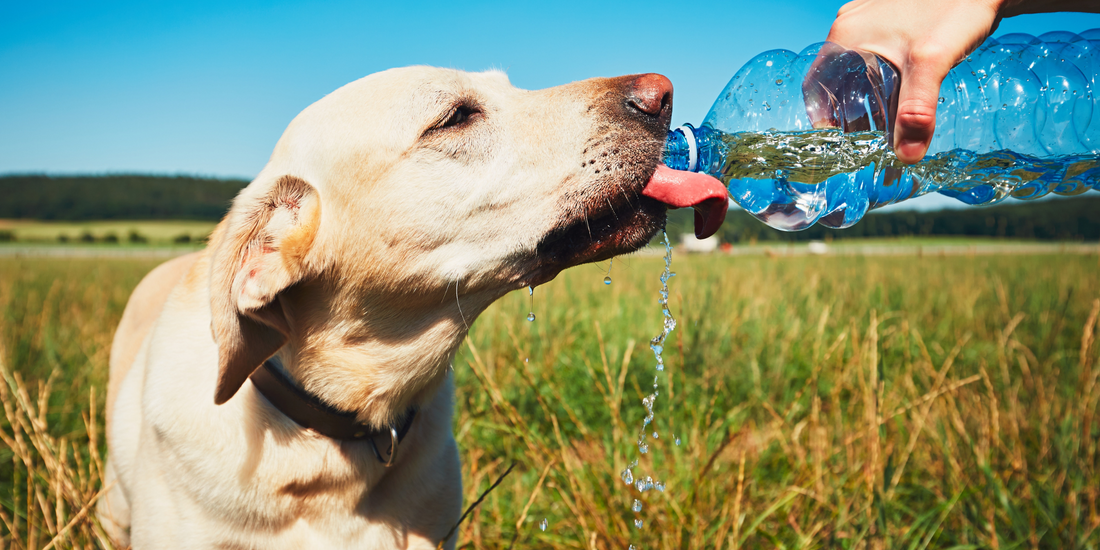Like humans, dogs need water to survive. And without water, dogs can become dehydrated quickly, which can put your pup in danger. This can be a major issue during the summer and hotter months of the year. So how can you tell if you have a dehydrated dog? Here are the signs of dehydration in dogs and dog dehydration symptoms.
Dehydration In Dogs
Dogs become dehydrated when they lose more water than they take in. This usually occurs through natural means, such as urination and panting. After losing water, the body then tries to compensate by pulling water from its cells. That causes the loss of key nutrients and electrolytes (like sodium, potassium and chloride), which can lead to dangerous health issues, including organ failure and death.
Symptoms Of Dog Dehydration
So what are the symptoms of dehydration in dogs? Here are the most common ones:
- Excessive panting
- Dry nose
- Dry gums
- Lethargy or low energy
- Decreased urination or dark urine
- Decreased skin elasticity
- Dry eyes that may be sunken in
- Decreased appetite
- Slow response time
- General weakness, especially when trying to walk
1. Check the gums
Hydrated dogs have moist and glossy gums, while dehydrated dogs have dry and slightly sticky gums. You can also test the gum's capillary refill response time to determine if your dog is dehydrated. To do so, gently press on your dog's gums until they turn white; release your finger and see how long it takes for the gums to turn pink again. If your dog is dehydrated, the gums will take longer to return to pink.
2. Check skin elasticity
Skin elasticity is how quickly skin bounces back into place after being pinched. Hydrated dogs have higher skin elasticity, while dehydrated dogs have lower elasticity. To check, gently pinch your dog's skin between your thumb and pointer finger; hold for a few seconds before releasing; observe how quickly your dog's skin returns to its original position. If it takes some time to bounce back, it likely means your dog is dehydrated.
Pro Tip: Dog dehydration requires immediate attention and treatment. If you believe your dog is dehydrated, rehydrate them as soon as possible. Depending on the level of dehydration, solutions can range from your dog drinking water to a trip to the vet (in more severe cases).
Preventing Dehydration In Dogs
Dehydration in dogs can be scary and dangerous. This is why it's best to get ahead of it. Here are a few ways to prevent dehydration in your dog:
- Always have access to water. Make sure you always have fresh, clean water available for your dog. Try to keep your dog's water bowl full and bring water along if you're leaving the house with your dog.
- Avoid exercise and activity in hot weather, especially during the hottest hours of the day. And always bring water bottles when out in the heat.
- Do not leave your dog alone in the car.
- Track your dog's water intake. Becoming familiar with how much water your dog needs in general can help you notice when your dog is not getting the sufficient amount to stay hydrated.
- Give your dog ice cubes. If your dog isn't drinking enough water, you can use ice cubes to provide hydration. This is particularly helpful if your dog is disinterested in water for some reason.

